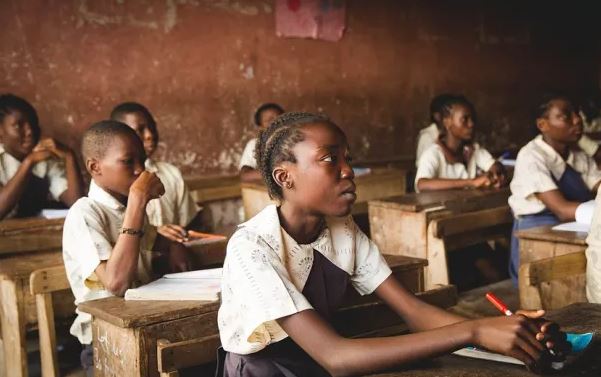Recently, they was news that the Nigerian Ministry of Education had increased, by over 100%, fees paid by Unity Schools in Nigeria.
The Office of the Director of Senior Secondary Education Department in the Federal Ministry of Education issued a Circular containing the breakdown of fees for Federal Unity Colleges. The Circular, signed by Hajia Binta Abdulkadir, specified the approved fees for new students in the 1st term.
According to the Circular, new students are now required to pay ₦100,000, an increase from the previous ₦45,000. This fee increment affects various aspects and activities within the school, such as tuition and boarding fees, uniforms, textbooks, deposits, exercise books, prospectus, caution fee, ID card, stationery, clubs and societies, sports, extra lessons, insurance, and more.
The Circular emphasised that the approved fees and charges for all Unity Colleges are only those listed, which include school fees, identification cards, stationery, lessons, insurance, security, ICT, utilities, and other relevant expenses.
While the government claimed that the increase in the fees would only apply to new students, many worry that the increment is another burden to parents who have to now deal with additional expenses after the removal of fuel subsidy.
There are also those who view the fee increment as a terrible idea, especially as Nigeria works to cut down its mountain of out-of-school children.
Expensive unity?
The history of Nigeria’s unity schools dates back to the early years of independence. In 1966, the Federal Government of Nigeria established three “Inter-Regional Secondary Schools” in Okposi (Eastern Region), Sokoto (Northern Region), and Warri (Midwestern Region). These schools were designed to promote national integration by bringing together students from different parts of the country.
The success of the first three schools led to the establishment of more unity schools in the following years. By the end of the Civil War in 1970, there were 12 unity schools in Nigeria. In the years since the number of unity schools has continued to grow, and there are now 104 such schools in the country.
Unity schools are co-educational boarding schools that offer a high-quality education. They are highly competitive to get into, and admission is based on merit. Students from all over Nigeria are eligible to apply, and the schools are designed to promote national integration by bringing together students from different ethnic and religious backgrounds.
Unity schools have played an important role in promoting national integration in Nigeria. They have helped to break down ethnic and religious barriers, and they have created a sense of common identity.
Nigeria’s problem of keeping children in school
Nigeria, Africa’s largest democracy and the biggest exporter of crude oil, is plagued with about 20 million out-of-school children.
Responsible for that number is issues like insurgency and banditry in the Northeast and Northcentral, which has made school dangerous for many students.
Also, many schools in the country lack infrastructure, including teachers, classrooms and learning materials, making it challenging for children to access schools.
In addition, over half of Nigeria’s 200 million population lives in multi-dimensional poverty, and many families struggle to meet basic needs, making it difficult to afford education-related expenses like school fees, uniforms, and supplies.
In fact, most Nigerians spend 85% of their earnings on food, leaving only 25% for rent, transport, health care and education, and with the current increase in school fees, this will only be squeezing life out of the struggling population.
Wrong timing
When the Nigerian Government removed petrol subsidies, prices of goods and services in Nigeria shot up, things became bleaker when the peg on the exchange rate was removed, with the NBS announcing that the increase in the price of goods and services had moved the inflation rate to 22%.
As Nigerians grapple with the rising cost of food, some universities also announced an increase in their fees, and with the increase in the school fees of the unity schools, it has rolled the ball for private schools to do the same, making a terrible situation even worse.
There is no worse time than now to increase school fees, especially at the pre-tertiary level.
Now, to cut down the country’s number of out-of-school children, Nigeria needs to invest savings from subsidy removal into education. Nigeria’s yearly education budget is still way below UNESCO’s recommended 15% to 20%.
The government needs to allocate more funding to education in order to build more schools, hire more teachers, and provide free textbooks and other materials for learning.
And as it increases the budget for education, the government needs to be more thoughtful in its designs for schools, taking into consideration the peculiar demands of children in rural communities, girls and children with disabilities.
To increase pre-tertiary school attendance in the Northeast and Northwest, the government must address the root causes of conflict in the region and create a more peaceful environment for children. This includes addressing issues such as poverty, inequality, and political instability.
Until that is done, increasing school fees amounts to throwing more school-attending children onto the streets.






